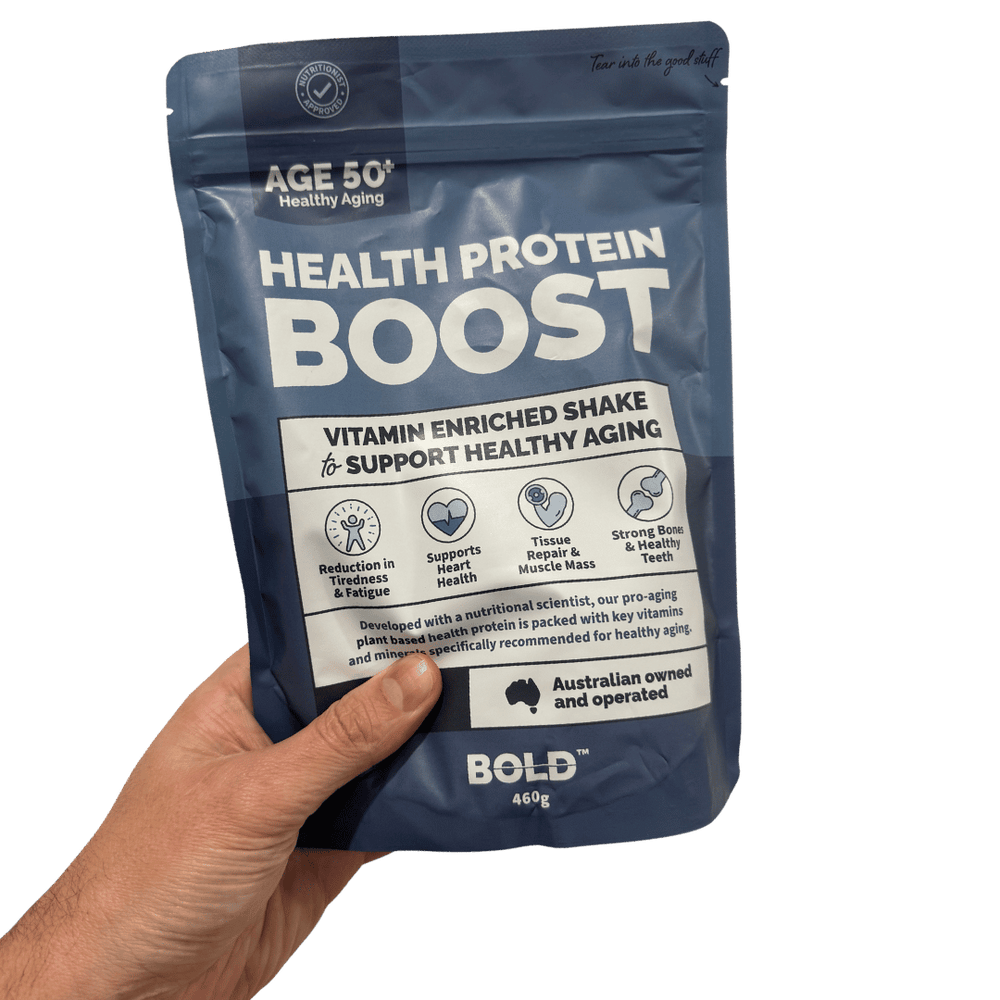Higher protein intakes are linked to maintaining muscle mass and strength

It’s a common misconception that protein shakes are just for muscle-bound guys who flex and pose in the gym. Yes, protein shakes are a convenient way to increase your protein intake. And higher protein intakes are linked to maintaining muscle mass and strength. But the benefits of increased protein and strength go much further than meet the eye.
A recent US study linked higher protein intakes to maintaining physical function in middle aged, high-functioning adults over more than 20 years[1]. The people with the highest protein intakes were more likely to be better at day-to day activities with a faster walking speed and stronger grip. They were also less like to fall, have fractures or be frail. It’s the type of data that suggests these people had a fuller, independent and active way of living.
The differences were striking – the group with the highest protein intake had a 30% lower risk of loss of functional integrity. And the trend was more meaningful in women than men. The study was observational but it helps upend the idea that extra protein is only for bodybuilders. Instead, higher protein intakes with regular activity have the potential to have a meaningful impact on everyday activities and quality of life.
As a consultant dietitian, I always say it’s important to get our nutrients from a wide variety of foods where ever possible. I’m also seen enough people to know that this isn’t always realistic. Protein shakes can help increase intakes through the day especially with breakfasts which are often low in protein or a snack through the day.

References
[1] Hruby A, Sahni S, Bolster D, Jacques PF. Protein Intake and Functional Integrity in Aging: The Framingham Heart Study Offspring. J Gerontol A Biol Sci Med Sci. 2020 Jan 1;75(1):123-130. doi: 10.1093/gerona/gly201.
----------------------------------------------------------------------------------------------------------
Medical Disclaimer
The information provided in this blog post is for general information only, it is not intended as medical advice. For medical advice please consult with a qualified medical professional who is familiar with your individual medical needs.


